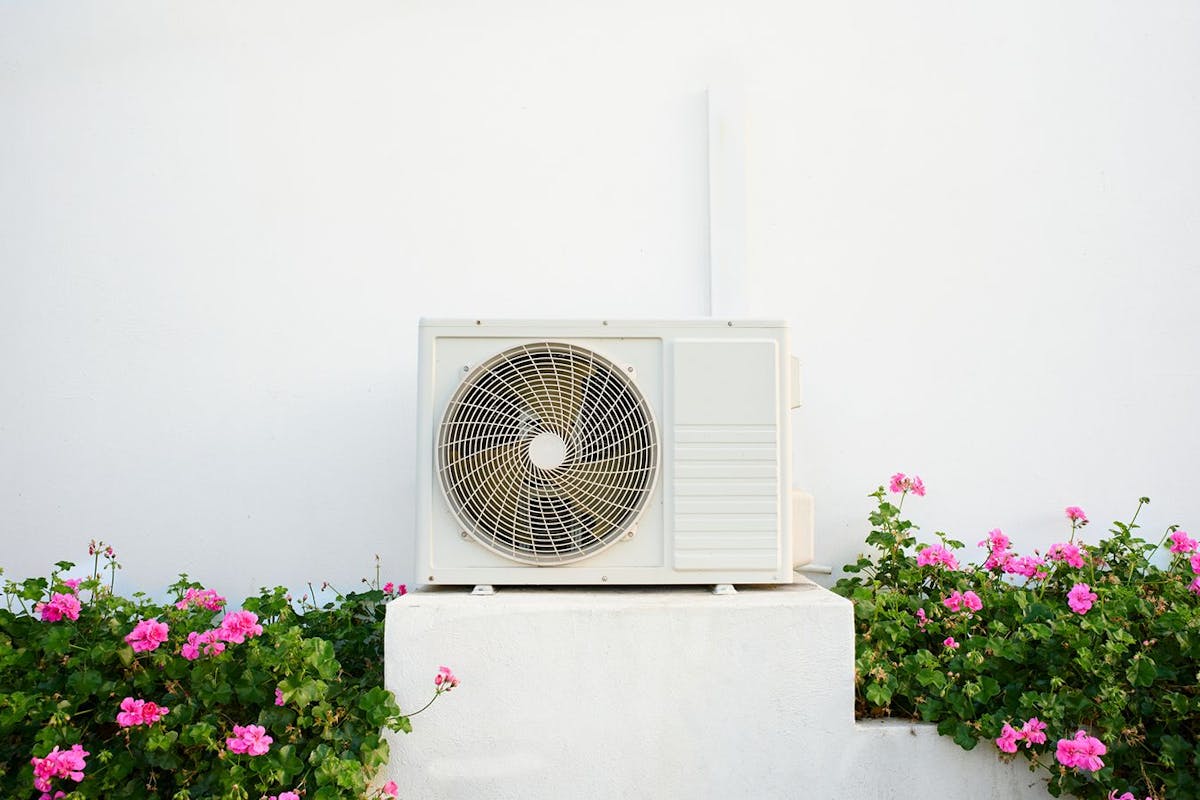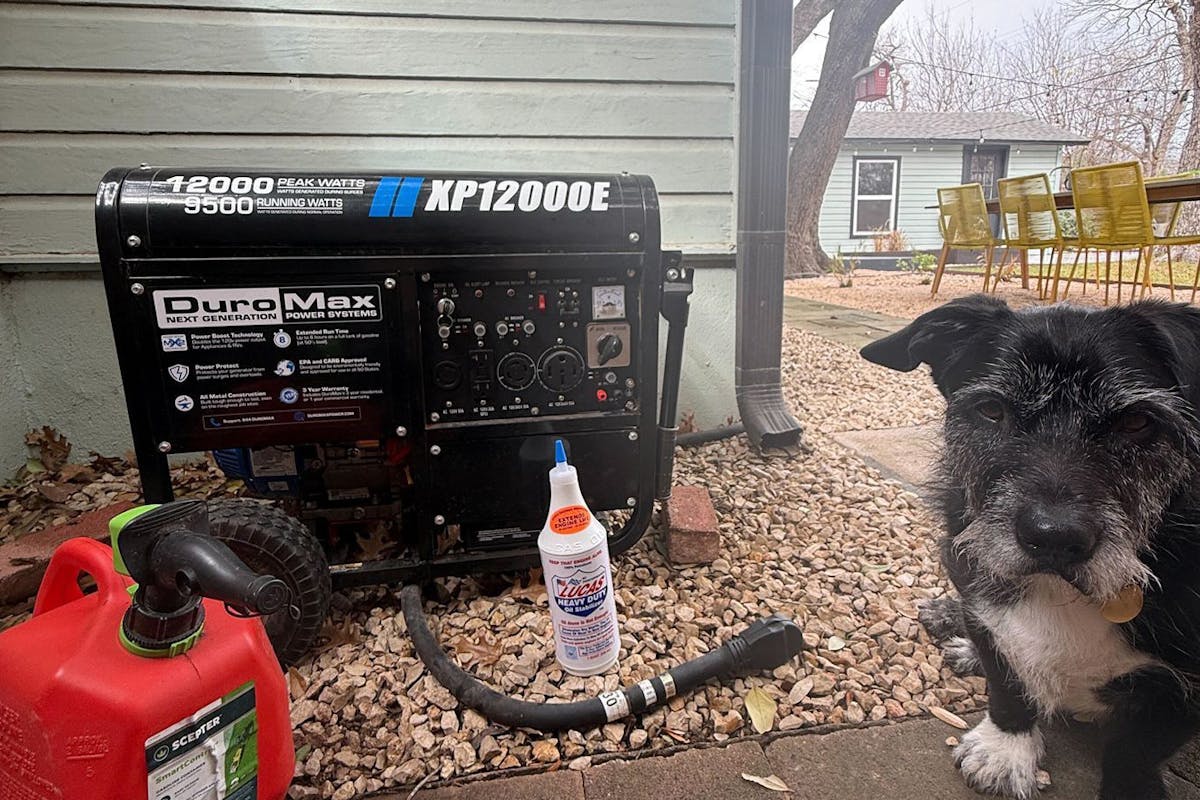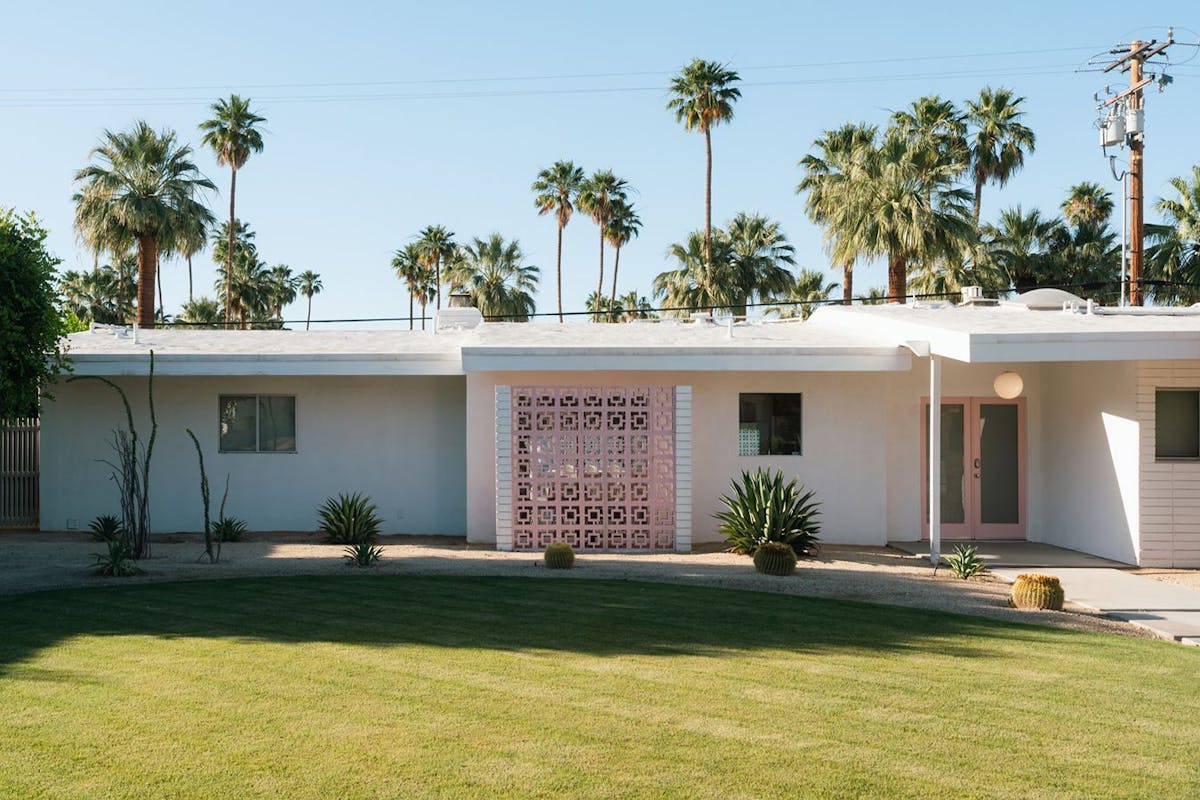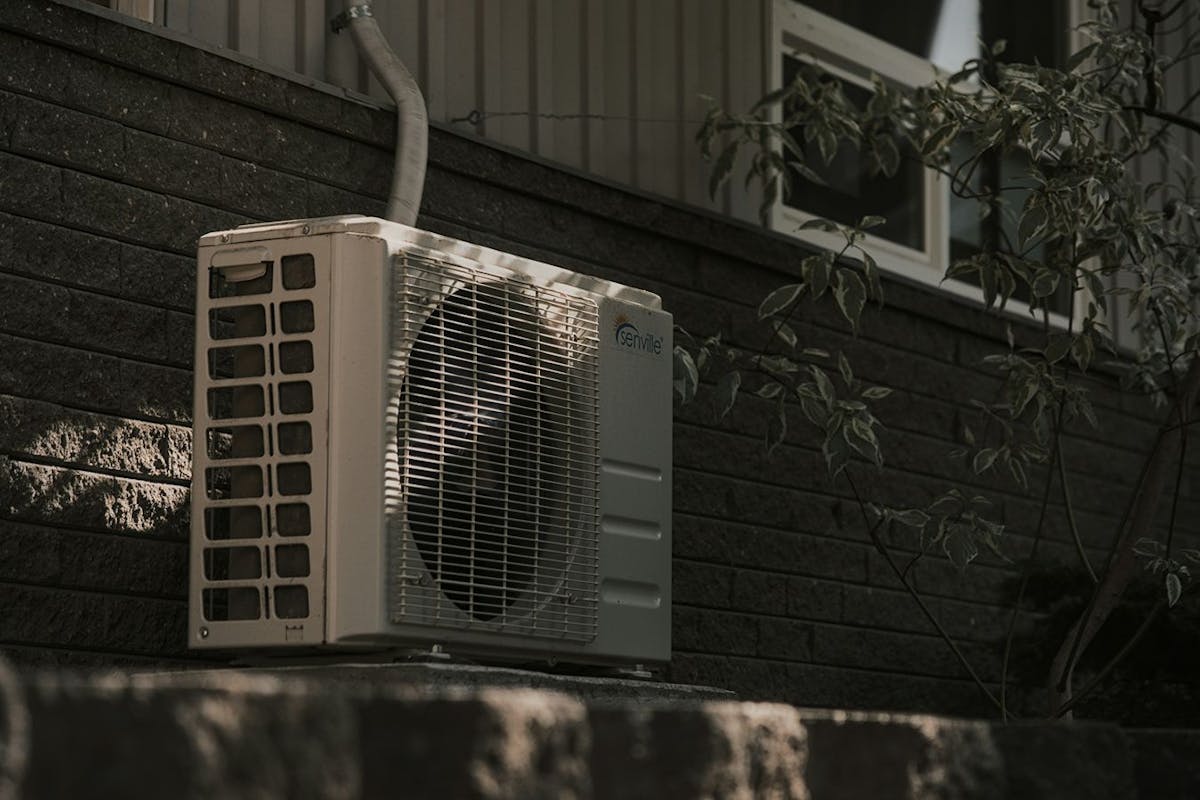How Long Does a Heat Pump Last?
Last edited
Author
Andrew Giermak
Solar and Electrification Writer and Editor
Editor
Andrew Blok
Electrification and Solar Writer and Editor

When investing in a new heat pump for your home, you want assurance the system will last. After all, it’s a major decision and cost.
Modern air source heat pumps are reliable, efficient, and, with proper care, now expected to last significantly longer than older models. Residential air source heat pumps typically last 15-20 years and geothermal heat pumps are even more durable, with underground components lasting 50 years or more.
A key to getting the most out of your investment is proper heat pump maintenance. Simple steps like keeping the outdoor unit clear of debris and changing air filters can maintain efficiency, prevent costly failures, and maximize your comfort for many years.
See how much you can save with a new HVAC system from Palmetto
How long do heat pumps last?
New energy-efficient heat pumps on the market now generally last longer than previous models of heat pumps. Heat pump maintenance and regular service are still important to the life expectancy of a system.
In the past, 10-15 years was a good estimate for a heat pump. Now, modern-day energy-efficient air source heat pumps typically last 15-20 years according to a 2024 study by the US Department of Housing and Urban Development. Research from the Department of Energy and Energy Star shows a heat pump's lifespan can vary widely, with high-quality, well-maintained units being more likely to last longer.
| HVAC System | Average Lifespan | |
|---|---|---|
| Furnace | 15-20 years | |
| Central air conditioner | 15-20 years | |
| Older air-source heat pump | 10-15 years | |
| New air-source heat pump | 15-25 years | |
| Mini-split (ductless) heat pump | 12-20 years | |
| Geothermal heat pump | 20 or more years |
How long does a geothermal heat pump last?
Geothermal or ground source heat pumps last longer on average, typically 20 or more years with the underground components lasting up to 50 years.
The indoor heat pump unit in a geothermal system, which contains the mechanical parts, typically lasts 20-25 years. It is expected to last longer than a conventional air source heat pump as it’s protected from outdoor elements.
The underground loop system is the most durable part of the system. Made from high-density polyethylene, it can last for 50 years or more, with some estimates suggesting it could last for over 100 years.
See how much you can save with a new HVAC system from Palmetto
Ways to extend a heat pump’s lifespan
Proper service and maintenance, plus your heating and cooling habits, can extend the lifespan of your heat pump. Here are some ideas and tips.
- Keep the exterior unit clean and clear: The outdoor unit needs good airflow for the best efficiency and life expectancy. Keep mulch, grass, dirt, debris, and any other obstructions away by two feet or more.
- Change filters: Dirty, clogged air filters restrict airflow and let more particulates and pollutants into your indoor air. Clean filters help a heat pump run as it should. Check filters monthly and replace them every 1-3 months or as recommended.
- Regular service: Regular professional service, typically once in the spring before cooling season and once in the fall before heating season, keeps a heat pump running efficiently and finds problems before they become more expensive.
- Insulation: Improved insulation has multiple benefits, including to a heat pump's efficiency and lifespan. A well-insulated home requires significantly less work from the heat pump to maintain a comfortable temperature.
When should you replace a heat pump?
You’ll probably know pretty quickly if your heat pump dies. Short of that, what are some signs your heat pump may be on its way out or so old and inefficient it’s costing you?
- Age: Heat pumps can last longer than the estimated, average lifespan. But, if your heat pump has reached 15 or so years old, it’s likely the clock is ticking and you would see better efficiency, performance, and savings with a new heat pump.
- Higher bills: If you see higher electricity bills for consecutive months, it could be your heat pump working harder as it starts to fail.
- Costly repairs: If you have repeated repairs and repairs adding up to money that could be better served going into a new system, it could be time to replace it.
- Noises: If you’re hearing banging, squealing, grinding, or hissing, it could be a sign a heat pump is nearly dead or another problem that could raise your electricity bill.
- Performance: If you’re experiencing uneven temperatures in different parts of your home, or the heat pump runs, but is unable to reach the temperature you set during very hot or very cold weather, it could be a sign of the end.
A heat pump lease, with maintenance and service included, is one way to ensure your heat pump has a long life. Not only can you avoid the upfront cost of purchasing and installing a heat pump, you can avoid the hassle of tracking and scheduling life-extending maintenance.
To learn more about leasing a heat pump with Palmetto's Comfort Plan and saving overall on your home energy, explore our HVAC advisor and Savings Maximizer tools.
If you’d like to learn more about your home’s energy usage and see great ways to save money, download and explore the new Palmetto app.
See how much you can save with a new HVAC system from Palmetto
Frequently asked questions
Do heat pumps have a shorter lifespan than a central air conditioner?
No, especially newer heat pumps. New air source heat pumps can last 15-25 years and geothermal heat pumps can last longer. New heat pumps with better technology and efficiency have longer lifespans.
How long do heat pumps last?
A new air source heat pump can be expected to last 15-25 years depending on usage, maintenance, and climate.
How can I extend my heat pump’s lifespan?
You can extend your heat pump’s likely lifespan by doing maintenance tasks like changing filters, keeping the area and ground around the exterior unit clear, making sure your home’s insulation is in good condition, and getting professional service as recommended.
Does a smart thermostat work with a heat pump?
Yes, you can use a smart thermostat for greater energy efficiency. A smart thermostat can make your heating and cooling more efficient without relying on your memory or programming a thermostat to the best timing and settings. Verify your preferred smart thermostat is compatible with your heat pump.


